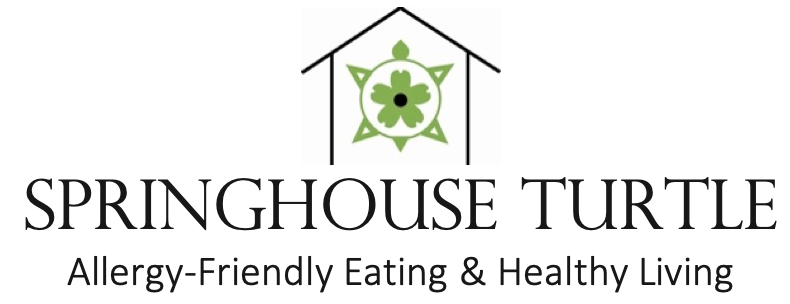Non-dairy milks
I buy unsweetened organic almond and coconut milks in cartons. You can buy the UHT cartons you keep in the pantry, but I prefer the fresher stuff you keep in the fridge. You can make non-dairy milks in a Vitamix or blender omitting all the additives they put in the commercial brands that make these products smoother and creamier. Non-dairy milks are available at most supermarkets and are not expensive, so I use them for convenience although the homemade variety is better.
Dairy-free butter
I buy Earth Balance Soy Free Buttery Spread. It’s not perfect, but it tastes a lot like butter. It works well in baking, although I often use coconut oil or nut butters as a butter substitute in baking. Other brands are available that are reasonable substitutes for butter. Always read labels. Some contain milk!
Gluten-free bread.
I buy uncut loaves from a local restaurant and store them in my freezer. Gluten-free bread does not survive for long outside of the refrigerator or freezer. It gets dry and falls apart because it doesn’t contain that elastic gluten. The bread I buy has no rice in it, and we all love it. Ask around at bakeries and restaurants near you. If they don’t have it, they may point you to a local baker who does. There are many national brands of gluten-free bread available at Whole Foods and Trader Joe’s and other supermarkets, but most contain rice which is fine if you are not allergic to it. Gluten-free bread is often found in the freezer section because it spoils quickly. I sometimes bake my own gluten-free bread, which is delicious, but doesn’t keep for long. If you have the time, it’s much cheaper and more satisfying.
Organic, grass-fed meats.
I only buy one brand of beef that’s raised at a farm near where I live. Commercial ground beef can be made up of meat from dozens of cows, increasing the likelihood of disease, so I stick with grass-fed beef from farmers I know. I buy chickens from a farmer who raises them without any chemicals, even though her farm is not technically certified organic. I buy organic sausages and pork from an organic supermarket. I also buy organic bacon and organic chicken from Costco and Trader Joe’s, but it’s not nearly as good as the local farmer’s chicken. I do the best I can, since at least it’s organic.
Organic fruits and vegetables (in season)
During the summer and fall, I buy fruits and vegetables at the farmer’s market. Not all of them are organic. I only buy organic strawberries because conventional strawberries are loaded with pesticide residues. If I buy conventional peaches, I peel them. Other conventionally grown fruits like blueberries, I wash very well in lots of water. When I have a choice, I always buy organic fruits and vegetables, even though they are more expensive.
Cheese substitutes.
I buy Daiya and Trader Joe’s brand shredded mozzarella cheese substitute. Most cheese substitutes are made from tapioca. Some are made from cashews or other nuts. I have not found any non-dairy cheese that tastes like the real thing. But they will do. They work fine on pizza, and my children like them OK. Diaya makes “cheddar” cheese slices that will melt acceptably on hamburgers. One of my children loves a nondairy cheese made from quinoa.
Seltzer
Since buying a Soda Stream seltzer maker recently, I stopped lugging boxes of Gerolsteiner and San Pellegrino home from the supermarket and Costco. My youngest child drinks loads of seltzer, so it’s always in our fridge. I sneak a pinch of Pure Encapsulations Mineral2O into seltzer to add minerals or to make a sports drink on my children’s game days.

